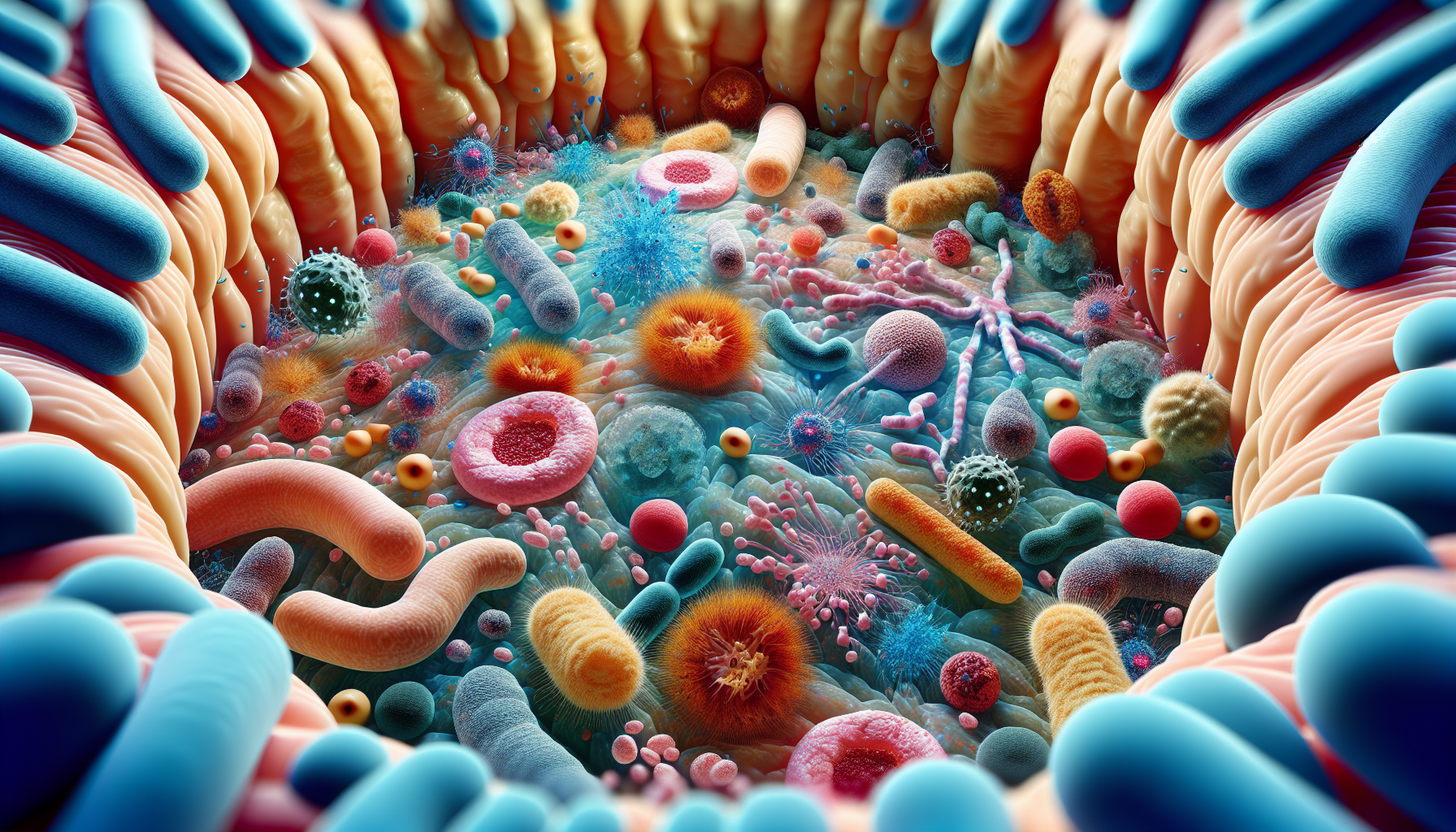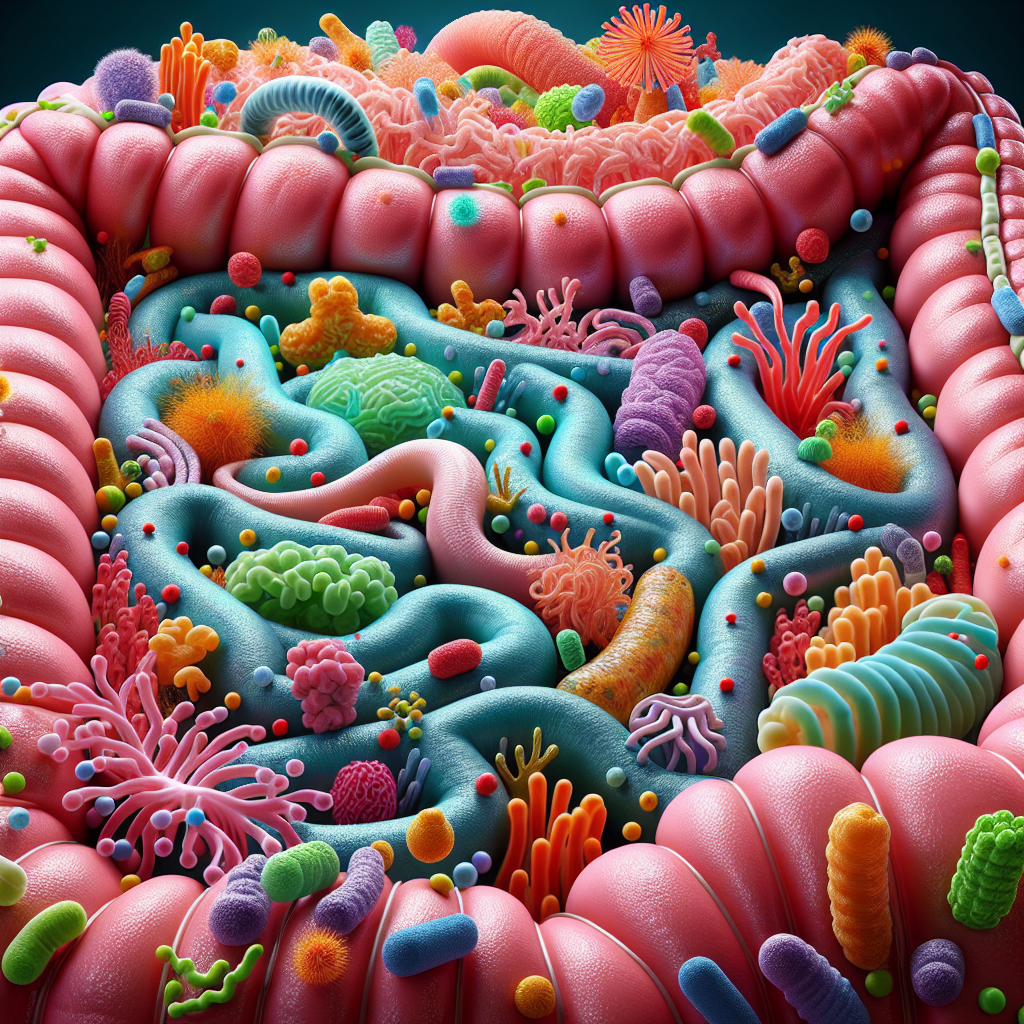The human gut is a complex ecosystem, home to trillions of microorganisms including bacteria, viruses, fungi, and protozoa. This diverse community, known as the gut microbiota, plays a crucial role in maintaining our health by aiding digestion, synthesizing vitamins, and protecting against pathogens. However, the delicate balance of this ecosystem can be disrupted by various factors, with antibiotics being one of the most significant. In this comprehensive article, we will delve into the impact of antibiotics on intestinal flora, explore the consequences for health, and discuss strategies to restore and maintain a healthy gut microbiome.
Antibiotics and the Gut Microbiome
Antibiotics are powerful medications designed to kill or inhibit the growth of bacteria causing infections. While they are indispensable in treating bacterial infections, their use can have unintended consequences on the intestinal flora. Antibiotics cannot distinguish between pathogenic bacteria and the beneficial ones that reside in our gut. As a result, they often wipe out a broad spectrum of bacteria, including those vital for our health.
The disruption of the gut microbiota by antibiotics can lead to a decrease in bacterial diversity and a shift in the composition of the microbial community. This can result in the overgrowth of harmful bacteria, such as Clostridium difficile, which can cause severe diarrhea and colitis.
For further reading on how diet can influence gut health, you may want to explore the Benefits of a Plant-Based Diet for Digestive Health, which provides insight into how a diet rich in fruits, vegetables, and whole grains can promote a healthy gut microbiome.
Consequences of Disrupted Gut Microbiota
The consequences of antibiotic-induced dysbiosis – a term for microbial imbalance – can be far-reaching. Research has linked changes in the gut microbiota to a variety of health issues, including:
- Digestive Disorders: Antibiotics can lead to conditions such as antibiotic-associated diarrhea, and in some cases, more severe infections like C. difficile colitis.
- Metabolic Changes: The gut microbiota plays a role in the regulation of metabolism. Disruptions can affect the body’s ability to process and store fats, potentially leading to obesity and other metabolic disorders.
- Immune System Dysfunction: A healthy gut microbiota is essential for the development and function of the immune system. An imbalance can impair immune responses and increase susceptibility to infections and autoimmune diseases.
- Mental Health: There is a growing body of evidence supporting the gut-brain axis, which suggests that gut health can influence mental well-being. Dysbiosis has been associated with conditions such as depression and anxiety.
For a deeper understanding of gut health and its connection to mental wellness, consider reading about the Link Between Gut Health and Mental Wellbeing.
Strategies to Mitigate the Effects of Antibiotics
While the use of antibiotics can be essential for treating bacterial infections, there are strategies to mitigate their impact on the gut microbiota:
- Judicious Use of Antibiotics: Antibiotics should only be used when necessary and prescribed by a healthcare professional. Avoiding unnecessary antibiotic use can prevent the disruption of the gut microbiota.
- Probiotics and Prebiotics: These supplements can help restore and maintain a healthy gut microbiome. Probiotics contain live beneficial bacteria, while prebiotics are fibers that feed those bacteria.
- Dietary Adjustments: Consuming a diet high in fiber from fruits, vegetables, and whole grains can help promote the growth of beneficial gut bacteria.
For more information on the benefits of probiotics, you might want to read about Using Probiotic Foods to Naturally Improve Gut Health.
Restoring Gut Health After Antibiotics
Restoring gut health after antibiotic treatment can take time, but with the right approach, it is possible to re-establish a balanced microbiota:
- Gradual Reintroduction of Diverse Foods: After completing antibiotic therapy, gradually reintroducing a wide variety of foods, especially those rich in fiber, can support the regrowth of a diverse gut microbiota.
- Probiotic Supplementation: Research suggests that taking probiotics during and after antibiotic treatment can reduce the risk of antibiotic-associated diarrhea and help repopulate the gut with beneficial bacteria.
For a comprehensive resource on digestive health that covers various aspects of maintaining a healthy gut, visit Digestive Health on Avix Health.
External Resources to Consider
To further enhance your understanding of this topic, here are some niche and specific resources that provide additional insights:
- International Journal of Molecular Sciences: The Impact of Gut Microbiota on Drug Metabolism and Resistance
- Gut Microbiota for Health: An Expert Platform on the Role of the Gut Microbiota in Health and Disease
- American Society for Microbiology: Microbial Ecology and Infectious Disease
- The Nutrition Source by Harvard T.H. Chan School of Public Health: The Microbiome
Conclusion
Antibiotics have a profound impact on the intestinal flora, leading to potential health consequences that can extend beyond the gut. Understanding the interplay between these medications and our microbiome is crucial for mitigating adverse effects. By practicing judicious use of antibiotics, taking probiotics and prebiotics, making dietary adjustments, and following a gradual approach to restore gut health, we can support the resilience and diversity of our intestinal flora.
As research continues to unravel the complexities of the gut microbiome, it is clear that maintaining its balance is integral to our overall well-being. By staying informed and proactive, we can foster a harmonious relationship with the microscopic inhabitants that play such a significant role in our health.



